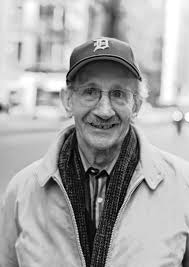Of course, it’s Tuesday. Monday slipped by again, busy with spring planting, new baby chicks, and miscellaneous garden chores–they are endless. But for today I thought I’d share two famous poets words on poetry. Philip Levine and Marianne Moore:
 A Theory of Prosody
A Theory of Prosody
When Nellie, my old pussy
cat, was still in her prime,
she would sit behind me
as I wrote, and when the line
got too long she’d reach
one sudden black foreleg down
and paw at the moving hand,
the offensive one. The first
time she drew blood I learned
it was poetic to end
a line anywhere to keep her
quiet. After all, many morn-
ings she’d gotten to the chair
long before I was even up.
Those nights I couldn’t sleep
she’d come and sit in my lap
to calm me. So I figured
I owed her the short cat line.
She’s dead now almost nine years,
and before that there was one
during which she faked attention
and I faked obedience.
Isn’t that what it’s about–
pretending there’s an alert cat
who leaves nothing to chance.
Philip Levine
* * *
 Poetry
Poetry
I, too, dislike it: there are things that are important beyond
xxxxall this fiddle.
xxReading it, however, with a perfect contempt for it, one
xxxxdiscovers in
xxit after all, a place for the genuine.
xxxxHands that can grasp, eyes
xxxxthat can dilate, hair that can rise
xxxxxif it must, these things are important not because a
high-sounding interpretation can be put upon them but because
xxxxthey are
xxuseful. When they become so derivative as to become
xxxxunintelligible,
xxthe same thing may be said for all of us, that we
xxxxdo not admire what
xxxxwe cannot understand: the bat
xxxxxholding on upside down or in quest of something to
eat, elephants pushing, a wild horse taking a roll, a tireless
xxxxwolf under
xxa tree, the immovable critic twitching his skin like a horse
xxxxthat feels a flea, the base-
xxball fan, the statistician–
xxxxnor is it valid
xxxxxto discriminate against “business documents and
school-books”; all these phenomena are important. One must make
xxxxa distinction
xxhowever: when dragged into prominence by half poets, the
xxxxresult is not poetry,
xxxx“literalists of
xxxxthe imagination”–above
xxxxxinsolence and triviality and can present
for inspection, “imaginary gardens with real toads in them,”
xxxxxshall we have
xxit. In the meantime, if you demand on the one hand,
xxthe raw material of poetry in
xxxxall its rawness and
xxxxthat which is on the other hand
xxxxxgenuine, you are interested in poetry.
Marianne Moore
I seem to have read somewhere that she later revised this as follows:
Poetry
I, too, dislike it.
In any case, I am definitely on the side of brevity. As Muriel Rukeyser said, poetry is boring. You have to make the reader want to go on to the next line (or something like that).